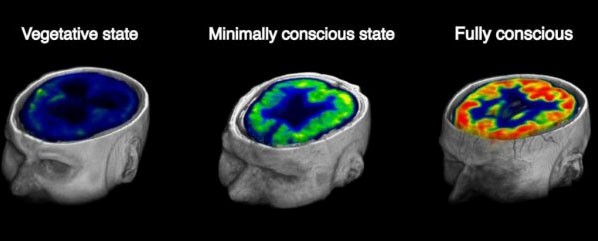Anyone who has experienced a loved one in a coma will understand that sometimes all you want is some hint of whether they can wake up.

Unfortunately, everyone's brains are different, so it's hard for doctors to predict if a patient can wake up. However, studies have shown that a routine test can accurately predict the wakingness of comatose patients and even predict the likelihood of their waking.
The test, called PET scanning, measures the amount of sugar ingested by people's brain cells, which has been used by many hospitals to identify patients who are completely in a coma and those who are hidden from the signs of waking. Researchers have found that these results can also accurately predict whether a patient can wake up.
Ron Kupers, a principal researcher at the University of Copenhagen and Yale University, said: "In almost all cases, the energy flow throughout the brain directly predicts the patient's current level of waking and the likelihood that they will subsequently recover." The test measures the sugar in the brain. Metabolism, so basically people can use this method to measure the energy used by brain cells.
The researchers found that the energy used by the patient's brain cells is not only closely related to the patient's behavioral response, but also predicts which patients will wake up from the plant state. Kupers said: "In short, our findings suggest that patients with brain damage want to wake up from a coma, then their brain energy must meet the minimum needs."
To test this, they measured the sugar consumed by the brain in 131 brain-injured patients (both in the long-term or short-lived coma). They used the common brain scanning technique FDG-PET to measure the neuronal metabolism of these patients and compare these results with whether the patient wakes up within a year.
They found that patients with less than 42% of normal brain activity in brain activity did not regain consciousness after one year, while those with higher brain activity woke up within a year. Overall, the test predicts whether patients are awake from plant status with an accuracy rate of 94 percent.
Research co-author Johan Stender said: "When a patient's brain activity reaches a certain threshold, their consciousness will 'ignite.' We cannot directly test this hypothesis, but our research provides an interesting direction for future research. ."
Now the team is continuing to monitor changes in the brain's metabolism over time, so they can better understand the meaning of these energy characteristics.
The study has been peer-reviewed and published in the journal Contemporary Biology, and it is now the task of scientists to validate the findings of Kupers and its team.
Although these results are very impressive, the 131 sample is not large, so scientists need more evidence. But for the families of patients with brain damage, this is a step full of hope, they can look forward to the arrival of next year, whether the results improve or deteriorate.
I hope that one day this study will help patients get better treatment. The more we understand the inner part of the patient's brain, the more likely it is to help them.
Sea Shrimp Series,Pink Shrimp,Headless Pink Shrimp,Headless Ramboo Prawn
GOLD STAR FISHERY ZHOUSHAN CO.,LTD. , https://www.goldstar-aquatic.com